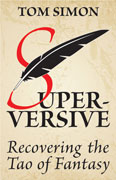A lively discussion has erupted at The Passive Voice, in response to a rant by one of the usual suspects telling self-published writers to slow down and not write so much. Fast writing is not necessarily bad, and slow writing, Heaven knows, can be utter crud. Great novels have been written in a span of weeks or even days. But nobody ever wrote great novels at that pace, one after another, and kept it up for a span of years.
People point to Isaac Asimov as an exception. He was a man who wrote 500 books, so Wikipedia tells us, and Wikipedia wouldn’t steer us wrong, would it?
Well, maybe.
If you look up the word prolific in any really good dictionary, you will find a picture of Isaac Asimov sitting at his typewriter. ‘Prolific’ was the adjective most often applied to him as a writer, and the one he was most proud of. But even he had his limits. His average output from 1958, when he became a full-time writer, to about 1989, when illness took away his ability to work regularly, was (by his own reckoning) in the neighbourhood of 500,000 words a year. That’s 15 million words in all, or about enough to fill about 200 paperback books of the size that used to be usual in his younger days – say, 200 to 250 pages. (The average size of paperbacks began to balloon in the 1970s, but that’s another story.) Some of his nonfiction books were quite short, and a number of his stories and essays were published in more than one book; that brings us up well over 300, but it still leaves us far short of the number given by Wikipedia.
So how did he get to 500 books? Simple: he cheated.








Recent Comments